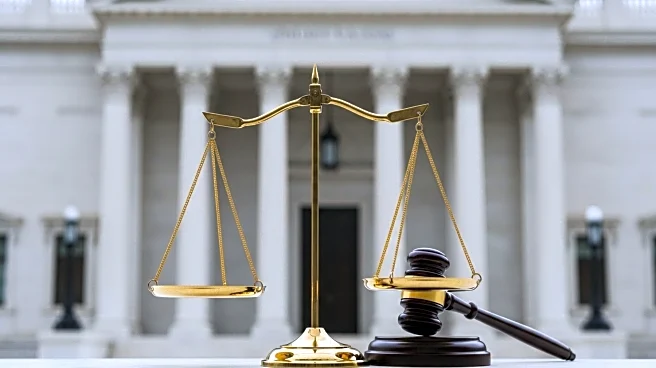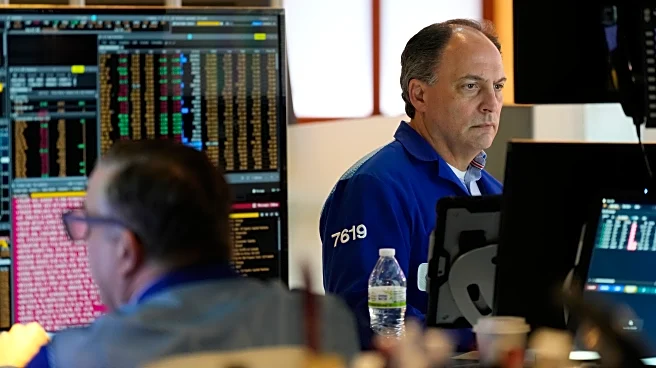What's Happening?
President Trump has initiated efforts to gain control over the Federal Reserve by attempting to remove Lisa Cook, a Biden-appointed member of the Fed's board of governors. This move follows a Supreme Court decision that supports broad presidential powers, potentially allowing Trump to replace board members with loyalists. The Federal Reserve, established to oversee U.S. banks and promote economic expansion, has historically operated with a degree of independence from the presidency. However, recent Supreme Court rulings have challenged this autonomy, raising concerns about the Fed's ability to function without direct presidential control.
Why It's Important?
The Federal Reserve's independence is crucial for maintaining economic stability and preventing undue political influence over monetary policy. President Trump's actions could undermine this independence, affecting the Fed's ability to manage the money supply and regulate banks effectively. If successful, Trump's takeover could lead to significant shifts in U.S. economic policy, impacting financial markets and the broader economy. The situation also highlights the ongoing debate over presidential powers and the role of the judiciary in checking executive actions, with potential implications for other independent government agencies.
What's Next?
The legal battle over Lisa Cook's removal is ongoing, with potential implications for the Fed's governance structure. If the courts uphold Trump's actions, it could pave the way for further changes in the Fed's board composition, potentially altering its policy direction. The case may also prompt legislative or judicial responses to clarify the limits of presidential power over independent agencies. Stakeholders, including financial institutions and policymakers, are closely monitoring the situation, as its outcome could influence future regulatory and economic decisions.










